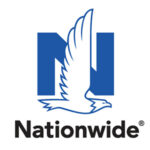What does a well-crafted network services agreement include?
A good network services agreement is essential for outlining the terms, responsibilities, and expectations between a network service provider and its clients.
When you, as an independent contractor, sign an agreement to handle network services for a company, it is oftentimes easy to forget some minor details that could eventually come back to haunt you. A good network services agreement clearly defines the responsibilities of both parties so you are not always left holding the short end of the stick. Making sure that your responsibilities are clearly defined is the first step to creating a good network services agreement.
Establishing who will cover expenses for any extra hardware, software, or materials is also an important addition to any network services contract. Clearly defining liability if a project does not work as expected or if some other outside force keeps the project from meeting scheduled deadlines should be a part of every network services contract.
Here are some key elements that are typically included in a good network services agreement:
- Scope of Services: Clearly define the scope of network services to be provided, including details on network design, installation, configuration, maintenance, monitoring, troubleshooting, and support. Specify any limitations or exclusions regarding the services provided.
- Service Level Agreements (SLAs): Outline the service level commitments, including uptime guarantees, response times for support requests, and performance metrics for network reliability, availability, and throughput. Define the process for measuring and reporting SLA compliance and specify any remedies or penalties for failing to meet SLA targets.
- Roles and Responsibilities: Clearly define the roles and responsibilities of both parties, including the service provider’s obligations to design, implement, and maintain the network infrastructure and the client’s responsibilities regarding access, cooperation, and payment.
- Ownership and Licensing: Specify ownership rights and licensing terms for any hardware, software, or intellectual property provided as part of the network services, including any restrictions on use, transfer, or modification.
- Data Protection and Privacy: Address data protection and privacy requirements, including compliance with applicable laws and regulations governing the collection, processing, and storage of personal or sensitive data. Specify security measures and data handling procedures to protect against unauthorized access, disclosure, or loss of data.
- Security and Compliance: Define security requirements and compliance standards for the network infrastructure, including measures for securing network access, protecting against cybersecurity threats, and conducting regular security assessments and audits.
- Confidentiality: Include confidentiality provisions to protect sensitive information shared between the parties during the agreement, including proprietary information, trade secrets, and customer data.
- Change Management: Establish procedures for managing changes to the network infrastructure, including documentation, testing, approval, and implementation of changes. Specify any change control processes or requirements for notifying and obtaining consent from the client before making significant changes to the network.
- Term and Termination: Define the terms of the agreement and the conditions under which either party may terminate the agreement, including rights and obligations upon termination, such as data migration, transition assistance, and post-termination support.
- Dispute Resolution: Specify procedures for resolving disputes that may arise under the agreement, including negotiation, mediation, arbitration, or litigation. Define the governing law and jurisdiction for resolving disputes and any limitations on liability or remedies.
- Insurance and Indemnification: Require the service provider to maintain appropriate insurance coverage, such as professional liability insurance, general liability insurance, and cyber liability insurance, and specify indemnification obligations to protect against claims arising from the services provided.
- Miscellaneous Provisions: Include miscellaneous provisions covering matters such as assignment, subcontracting, force majeure, waivers, and entire agreement clauses to ensure clarity and enforceability of the agreement.
By including these and other relevant provisions, a good network services agreement helps establish clear expectations, protect the interests of both parties and mitigate potential risks and liabilities associated with network services. It’s essential to work with legal counsel experienced in technology contracts and industry best practices to draft a comprehensive and enforceable agreement tailored to the specific needs and circumstances of the parties involved.











